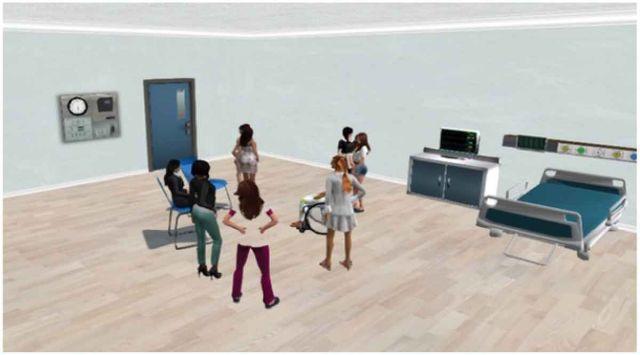-
About
- Departments & Offices
-
Academics
- Physician Assistant
- Special Master’s (MBS)
-
Admissions & Financial Aid
- Tuition & Fees
-
Student Life
-
Research
- Research Labs & Centers
-
Local & Global Engagement
- Global Health Programs
- Community Engagement
Virtual reality may help foster learning and collaboration across health professions
A new study says a simulated educational experience has the potential to enable convenient and effective interprofessional education in palliative care for health professions students

BOSTON (Oct. 3, 2019)—A virtual world may be a feasible learning platform for bringing together students from different healthcare professions and enhancing their understanding of collaborative patient care and knowledge of other health professions, according to a pilot study led by researchers from Tufts University School of Medicine and published online in the Journal of Interprofessional Care.
Interprofessional education (IPE) aims to foster learning and collaboration among healthcare students from different professions, with a goal of enhancing patient care. Scheduling face-to-face learning between students in different programs, however, is one of the largest barriers to implementing this type of learning. The study evaluated a virtual educational environment for its ability to provide IPE in palliative care, which is interdisciplinary by nature.